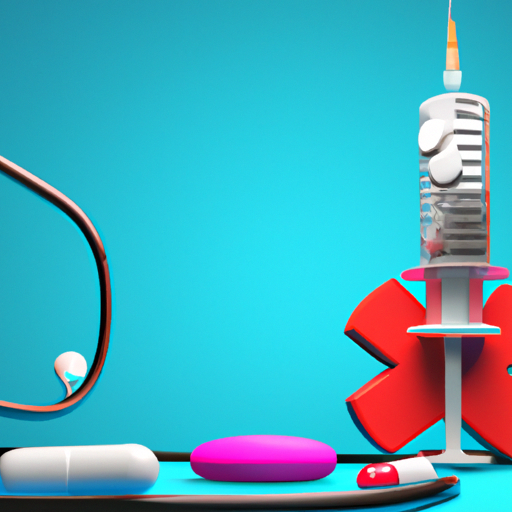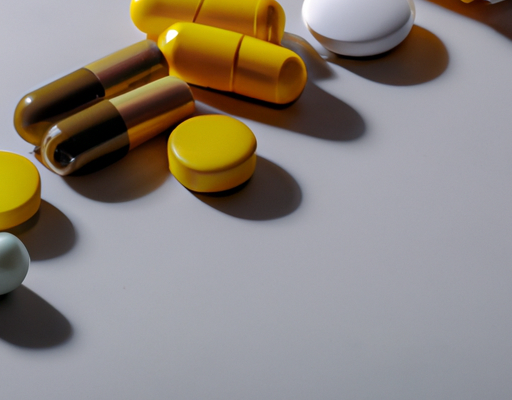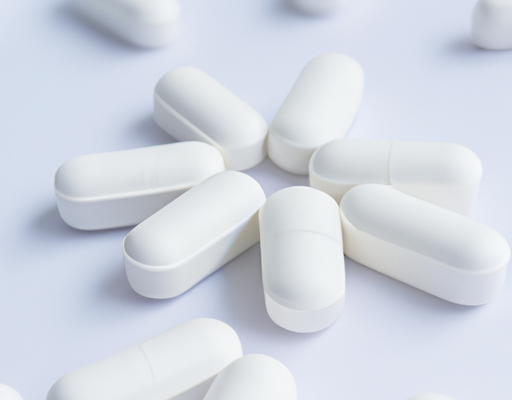1. What is Tryptophan?
Tryptophan is an essential amino acid found naturally in some foods, such as eggs, dairy, meats, nuts and seeds. It is necessary for the growth and maintenance of all cells and tissues, especially nerve cells. It is a precursor to the hormone serotonin which plays an important role in regulating mood and behavior. Tryptophan is also a precursor to the vitamin niacin (also called nicotinic acid), an important component of our diet that helps the body create energy and helps regulate blood sugar levels. Without adequate levels of tryptophan, the body can’t make the niacin it needs, and deficiencies can lead to problems like pellagra. Therefore, it is important to take in enough tryptophan in our diets to keep the vitamin niacin production going.
2. What is Niacin?
Niacin, or Vitamin B3, is one of the most important vitamins for our bodies. It supports the metabolism, helps in the production of energy, and enables the conversion of tryptophan, an amino acid, into niacin. Our bodies are not capable of producing niacin on its own, so it is important we obtain it through diet or supplementation. In addition to its role in tryptophan to niacin conversion, niacin further helps in the production of hormones, fats and cholesterol, and contributes to healthy skin, digestion, and nerve and cognitive function. Furthermore, it also helps with the detoxification process and works as an antioxidant. All in all, niacin is a vital nutrient and its deficiency should not be taken lightly.
3. How are Tryptophan and Niacin related?
Tryptophan and Niacin are related in their involvement with the production of a key coenzyme, NAD, which is essential for many processes in the body. Tryptophan is an essential amino acid, meaning that it cannot be produced by the body, and must be consumed through food. When the body receives tryptophan, it is converted into a nicotinamide molecule, which is then used to make NAD. NAD is then used to convert carbohydrates, fats, and proteins into energy. Niacin is a essential vitamin, and is also needed for the production of NAD. Niacin is absorbed from food, and is also stored in the liver. The absorption of niacin from the diet helps to replenish the stores of NAD in the body, allowing it to be used for energy production. Thus, both tryptophan and niacin are essential for the proper conversion of tryptophan to niacin, and the production of NAD.
4. What Vitamin is needed for Tryptophan to Niacin Conversion?
The conversion of tryptophan to niacin is essential for maintaining good health, however, it requires a specific nutrient to occur. The vitamin needed for this process is vitamin B3, or niacin. Niacin is a water-soluble vitamin found in many food sources, such as fish, poultry, beef, and pork. It can also be taken as a supplement and is heavily involved in cellular metabolism, the production of energy and the breakdown of fats. Without adequate niacin, tryptophan cannot be transformed into niacin and a deficiency can result. Eating foods rich in niacin, such as enriched grains, lean meats, legumes and dairy products, can help ensure an adequate supply for the body.
5. What other Sources of Vitamin B can be consumed?
Vitamin B is not only found in food sources, but also in other sources such as supplements. Supplements can be a great way to supplement a person’s diet with the necessary amounts of Vitamin B they need. Supplements can range from vitamins to probiotics to natural remedies, and are a great way to stay healthy and get the right amount of Vitamin B. For example, probiotics can help to support healthy bacteria in the gut, which is essential for the conversion of tryptophan to niacin. In addition to supplements, some people may opt for natural remedies such as herbal teas or extracts, which can provide the necessary Vitamin B and other vitamins and minerals needed for a healthy diet. Finally, some people may choose to add fortified foods to their diet, such as fortified breads and cereals, which can provide the necessary Vitamin B. No matter the choice, Vitamin B is essential for the conversion of tryptophan to niacin and should be monitored accordingly.
6. How to Ensure Adequate Vitamin B Intake?
Getting the right amount of Vitamin B is essential for ensuring proper tryptophan to niacin conversion. This can easily be done by making sure your diet includes plenty of natural foods that contain Vitamin B, such as eggs, dairy, poultry, fish, and fortified cereals. Additionally, taking a daily multivitamin can help ensure you get the necessary amounts of Vitamin B, as well as other vitamins and minerals that can help with tryptophan to niacin conversion. It is important to talk with your doctor before beginning any supplement regimen, as some vitamins can interact with medications or medical conditions. If a supplement is recommended, it is important to take it as directed and not exceed the recommended dosage. By taking the time to ensure your Vitamin B intake is adequate, you can help ensure proper tryptophan to niacin conversion and maintain your overall health.
7. Conclusion.
In conclusion, it is clear that tryptophan is essential for the conversion of niacin. This conversion is a process that takes place in the body and is reliant on the availability of tryptophan and other vitamins and minerals. Without the necessary vitamins and minerals, the conversion of tryptophan to niacin is not possible. This conversion is crucial for a healthy and balanced diet, as it is essential for the body to absorb and utilize the nutrients it needs. Lastly, it is important to ensure that your diet contains the recommended daily allowance of the essential vitamins and minerals needed for tryptophan to niacin conversion.





No Comments